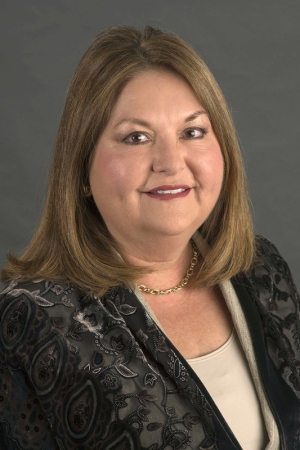Study Looks to Bring Hope to Older Latinos with Depression
October 22, 2014 / by Vincent Lim- Research
Late-life depression exerts significant physical and emotional burden on older adults, their families and health care systems. Studies indicate that older adults face unique challenges in battling depression. Unlike younger individuals with depression, older adults have a decreased likelihood of remission than younger populations, are more prone to suffer from functional disability and are less likely to receive quality mental health care.
For older, Spanish-speaking Latinos, the clinical picture is more complicated. They experience much higher rates of severe depression and disability, and are seven times less likely to receive psychotherapy from a clinical professional.
A project led by María P. Aranda, associate professor at the USC School of Social Work and a senior scientist with the USC Edward R. Roybal Institute on Aging, hopes to take a step toward changing the narrative surrounding late-life depression among older ethnic and racial minorities in the United States.
The three-year project supported by a $1.5 million award from the Patient-Centered Outcomes Research Institute (PCORI) will study the potential benefits of a culturally modified psychosocial intervention for Spanish-speaking Latino patients 55 years of age or older with depression and multiple medical conditions. PCORI is an independent, non-profit organization authorized by Congress in 2010 to fund comparative clinical effectiveness research that will provide patients, their caregivers and clinicians with the evidence-based information needed to make better-informed health and healthcare decisions.
“Given PCORI’s goal to address questions and concerns most relevant to patients, families and providers, the study provides us the opportunity to bring all stakeholders to the table to bridge the chasm between primary care and behavioral health,” Aranda said.
Bringing Hope to Patients
Aranda and her research team will test the effectiveness of Programa Esperanza (“Project Hope”) with 250 low-income, primarily Spanish-speaking older Latinos who are patients of AltaMed Health Services’ Program of All-Inclusive Care for the Elderly (PACE). The intervention rests in two specific areas—offering counseling in the patient’s preferred language and cultural orientation, plus training non-clinical social workers in an evidenced-based psychosocial problem-solving treatment.
PACE is a patient-centered medical home for individuals with at least three limitations in activities of daily living and who suffer from several chronic conditions. It uses an interdisciplinary team approach to provide patients with medical, social, nutritional and rehabilitative services.
Another goal of the study is to determine if the intervention will decrease individual, provider and organization barriers to treatment access. Improving care quality and coordination of care is critical to addressing disparities in health among older racial and ethnic minorities, particularly patients who have low rates of health literacy, Aranda noted.
“I had the opportunity to consult with AltaMed during the PACE program’s nascent stages,” Aranda said. “Although many people were telling me that older Latinos had an aversion to participating in behavioral health services, I found that to be far from the truth. It was a like a ‘don’t ask-don’t tell’ situation. Now we have come full circle to combating serious depression and its consequences among underrepresented older minorities.”
She hopes that results from the study will be widely disseminated across the nation and help to inform health care providers about the effectiveness of psychosocial treatments for low-income, limited-English-speaking older adult populations.
“This project was selected for PCORI funding not only for its scientific merit and commitment to engaging patients and other stakeholders, but also for its potential to fill an important gap in our health knowledge and give people information to help them weigh the effectiveness of their care options,” said PCORI Executive Director Joe Selby. “We look forward to following the study’s progress and working with USC to share the results.”
USC Provost Professor and USC Roybal Institute Executive Director William Vega is a co-investigator on the project along with Professor Wendy Mack from the Keck School of Medicine of USC and AltaMed’s Medical Director of Innovation Michael Hochman.
The project is the fourth PCORI award received by researchers at the School of Social Work. Aranda is a co-investigator on an ongoing $1.3 million PCORI-funded project led by Kathleen Ell, the Ernest P. Larson Professor of Health, Ethnicity and Poverty at the School of Social Work, which is testing the efficacy of community health workers or promotoras de salud with the Los Angeles County Department of Health Services.
To reference the work of our faculty online, we ask that you directly quote their work where possible and attribute it to "FACULTY NAME, a professor in the USC Suzanne Dworak-Peck School of Social Work” (LINK: https://dworakpeck.usc.edu)
